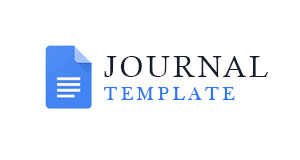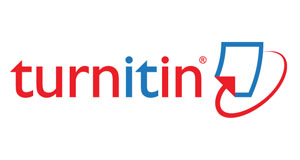DISTRIBUTION AND EMPOWERMENT OF ZAKAT IN MAQASID SHARIA PERSPECTIVE (Case Study of Dompet Dhuafa Waspada)
Abstract
Distribution becomes a key issue in the management of zakat in terms of its elementary role to achieve maqasid sharia as the goal. Today, there are a plenty of innovative programs made by zakat management agencies in distributing zakat such as by DDW in North Sumatra to persuade people to give up their zakat to optimize in targeting the maqasid sharia. This study will elaborate the role of distribution in meeting the requirement of targeted maqashid sharia involving qualitative data collection method based on interview and documentary inter-rater reliability procedure. The study reveals that the distribution organized by DDW has been successfully allocating zakat to major eligible beneficiaries which are predominantly poor and not riqab. Those programs have met the indicators of the fulfillment of the maqashid sharia. This study could explore more extensively on targeting to riqab and to the supporting programs purposing to hifz an-nasl (preserving the descendants).
Keywords
Full Text:
PDFReferences
Aibak, K. (2016). Pengelolaan Zakat Di Badan Amil Zakat Nasional Kabupaten Tulungagung Dalam Perspektif Maqashid Al-Syariah. Ahkam: Jurnal Hukum Islam, 4(2), 247-288.
Al-Mawardi, A. H. A. B. (1989). al-Ahkam as-Sulthaniyah wa al-Wilayat ad-Diniyah. Beirut: Dar Kutub al-Ilmiyah.
Chapra, M. U. (2001). Islamic economic thought and the new global economy. Islamic Economic Studies, 9(1).
Ferdaus, N. N. (2018). Pencapaian Nilai Maqaşid Syariah oleh mustahiq Zakat Produktif: Studi Komparatif Lazis YBW UII & BAZNAS Kota Yogyakarta. Skripsi. FAKULTAS ILMU AGAMA ISLAM UNIVERSITAS ISLAM INDONESIA YOGYAKARTA.
Hapsari, M. I., & Abidin, Z. (2016). Zakat distribution in maqasid al-shariah framework. Journal of Islamic Financial Studies, 2(02).
Ibrahim, A. (2011). Maksimalisasi Zakat Sebagai Salah Satu Komponen Fiskal Dalam Sistem Ekonomi Islam (Utilization of Zakat as a Fiscal Component in Islamic Economic System). JURISPRUDENSI Jurnal Syari'ah, 3(1), 1-10.
Irfanudidn, F. (2012). Pendayagunaan Zakat Produktif Dompet Dhuafa Yogyakarta Dalam Perspektif Maqasid Asy-Syari’ah (Doctoral dissertation, Tesis Magister Studi Islam, Fakultas Ilmu Agama Islam, Universitas Islam Indonesia).
Jauziyah, Ibnu Qayyim. (1423). Iʽlāmu al-Muwaqqiʽīn ʽan Rabb al-ʽālamīn. Dammam: Dār Ibn al-Jauzi.
Kementerian Agama Direktorat Pemberdayaan Zakat. (2012). Manajemen Pengelolaan Zakat. Jakarta: Kementerian Agama.
Nasution, J. (2019). Inovasi Pengelolaan Zakat Profesi dan Pengaruhnya terhadap Minat Berzakat di Dompet Dhuafa Waspada. JURNAL EKONOMI DAN BISNIS ISLAM, 4(1), 83-99.
Pailis, E. A., Burhan, U., & Ashar, K. (2016). The Influence of Maqashid syariah toward mustahiq’s Empowerment and Welfare (Study of Productive Zakat Recipients on Baznas Riau). American Journal of Economics, 6(2), 96-106.
Qaraḍȃwi, Yūsuf. (1973). Fiqh Az-Zakȃh. Beirut: Muassasah Ar-Risalah.
Soediro, A., & Meutia, I. (2018). MAQASID SHARIA AS A PERFORMANCE FRAMEWORK FOR ISLAMIC FINANCIAL INSTITUTIONS. Jurnal Akuntansi Multiparadigma, 9(1), 70-86.
Syarbīni, Muḥammad. (2009). Mugni Al-Muḥtȃj ila Ma’rifah Ma’ȃni Alfȃẓ Al-Minhȃj . Beirut: Dar Al-Fikr.
Syathibi, Abu Ishaq Ibrahim. (1997). Al-Muwafaqat. Arab Saudi: Dar Ibnu Affan.
Taimiyah, Ibnu. (1983). As-Siyasah Asy-Syar’iyah. Beirut: dar Al-Afaq Al-Jadidah.
Zubair, Abdullah. (2012). ‘Al-Maqashid Al-Mar’iyah fi Tasyri’ Az-Zakat’, The Higher Sharia Supervisory Board, (publications). http://www.hssb.gov.sd/. Akses Tanggal 17 November 2019.
Zuhaili, Wahbah. (2010). Mausu’ah Al-Fiqh Al-Islami wa Al-Qadhaya Al-Mu’ashirah. Damaskus: Dar Al-Fikr.
DOI: https://doi.org/10.24952/tijaroh.v7i2.4365
Refbacks
- There are currently no refbacks.
Copyright (c) 2021 At-tijaroh: Jurnal Ilmu Manajemen dan Bisnis Islam

This work is licensed under a Creative Commons Attribution-ShareAlike 4.0 International License.









